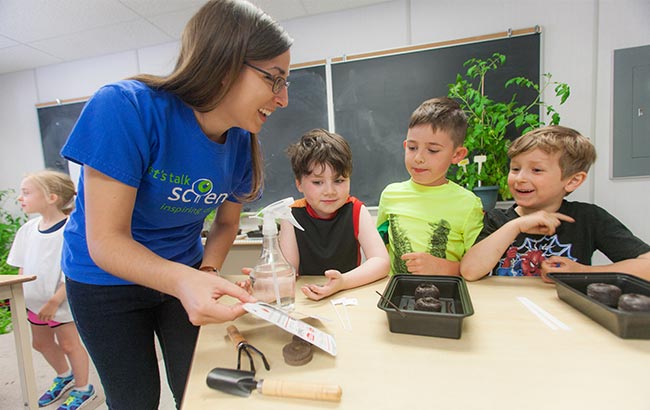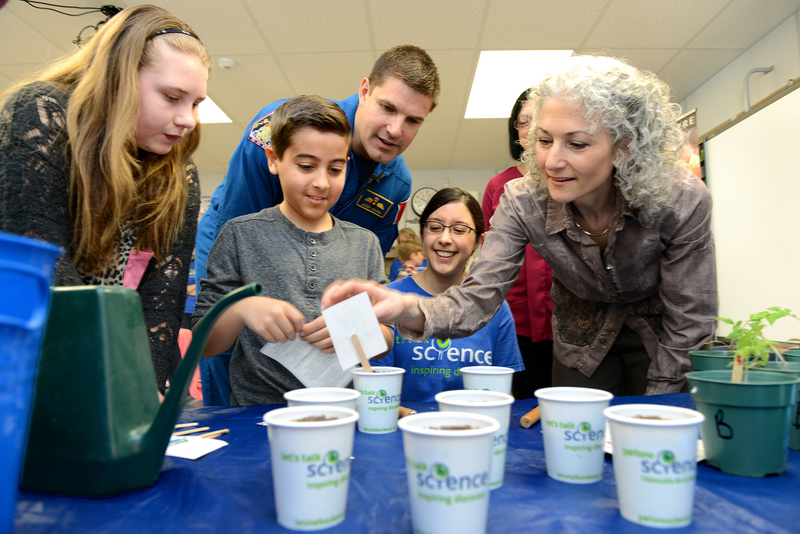
Project Overview
About the Project
Tomatosphere™ uses the excitement of space exploration as a way to teach the skills and processes of scientific inquiry. In the Seed Investigation, students examine the effects of the space environment on the germination of tomato seeds.
As humans seek ways to travel deeper into space, we must discover ways to expand life-support systems. One possible solution is a plant-based system. Tomato plants are an ideal choice as they provide wholesome nourishment and water through transpiration from their leaves. Through photosynthesis, tomato plants also convert light energy and carbon dioxide exhaled by astronauts into oxygen that is needed for survival.
Tomatosphere™’s Seed Investigation includes planting two sets of tomato seeds (one exposed to space or space-like conditions and the other untreated), examining and recording the germination of seeds, and submitting the results.

Scientific Inquiry and Tomatosphere™
Tomatosphere™ offers an excellent opportunity to have your students think and act like scientists as they practice their inquiry skills and develop understandings of the nature of science and the concept of a fair test.
As students engage in the steps of the Seed Investigation these skills can be introduced and practiced with the support of a variety of resources and suggested learning experiences that are appropriate to different ages and levels of understanding.
How does exposure to the space environment affect the number of tomato seeds that germinate?
To answer this questions, students will compare the number of seeds that germinate from two sets of tomato seeds. One set of seeds has been sent into space or treated in space-simulated conditions (“treated” seeds), and the other set of seeds (the “control” seeds), have not.
Tomatosphere™ Models a Fair Test
The simple and well-designed Seed Investigation is a valuable tool for modeling a fair test. Fair testing is a key component of scientific inquiry and a common method used by scientists world-wide to provide evidential proof of their ideas and theories.
As part of ensuring a fair test, you will not know which of the seeds have been in space, or if they have been treated or untreated, until the germination process is complete and results are submitted.